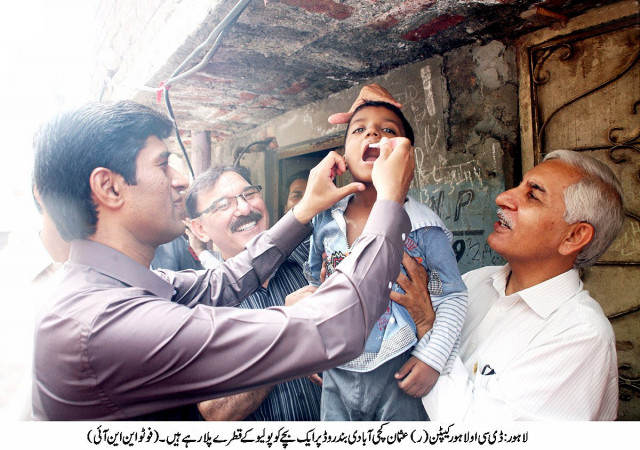Polio in Punjab
National polio outbreak in 2014 is almost certainly exacerbated by massive movement of IDPs from Operation Zarb-e-Azb

There are now reports of polio from all the four provinces and the future in terms of eradication is looking extremely bleak in the near-to-medium term. The report from Punjab, which has by far the highest percentage of children vaccinated for common childhood illnesses, is of real concern. The national manager of the EPI programme spoke of this being a wake-up call for the government — a call that should not have been needed at all, given the fact that Pakistan is facing travel restrictions because of its failure to control polio, and the proven linkage between cases of polio in other countries and Pakistan. Both Syria and Egypt have confirmed that the viral strain they have isolated originated in Pakistan.
What makes the Chakwal case stand out is that the child was local, not a migratory IDP. It is possible that the child was already in poor health or malnourished, which may reduce the efficacy of its immune system, thus negating the effects of the vaccine. It could also be that there were gaps in the cold-chain or it may even be possible that there was a faulty batch of vaccine — though for a child to be vaccinated seven times and still contract polio should ring alarm bells in any number of places, not least the management of the EPI itself. An urgent inquiry must be conducted to get to the root of the matter.
The national polio outbreak in 2014 is almost certainly exacerbated by the massive movement of IDPs associated with Operation Zarb-e-Azb. Although this has brought many children inside the vaccination envelope, it has also dispersed thousands of unvaccinated children quite widely across the country, and not only in Khyber-Pakhtunkhwa. Such mass movements are the bane of any vaccination programme, and not only of polio. Unvaccinated children are both hosts and transporters of the virus, and if they are in an area where vaccination rates are relatively lower, then the risk of transmission is increased. Poor sanitary facilities and contaminated water are often accompaniments to migration, personal hygiene is often poor and the spread of the disease a virtual certainty without it being tackled on what is truly a war footing.
The EPI official has expressed concern at the poor quality of the polio drives in Balochistan that have been carried out in recent years, and a recent evaluation report showed clear gaps in the programme. The vaccinators are themselves at severe risk and there is a long list of these poorly paid but valiant people — mostly women — being killed as they go about their duties. The security services are not always as mindful of their job as they need to be and fail to protect the vaccinators, and there is a steady cull of programme administrators as well, which further degrades the effectiveness of the programme. Pakistan cannot afford to lose this battle.
Published in The Express Tribune, August 9th, 2014.
Like Opinion & Editorial on Facebook, follow @ETOpEd on Twitter to receive all updates on all our daily pieces.



















COMMENTS
Comments are moderated and generally will be posted if they are on-topic and not abusive.
For more information, please see our Comments FAQ